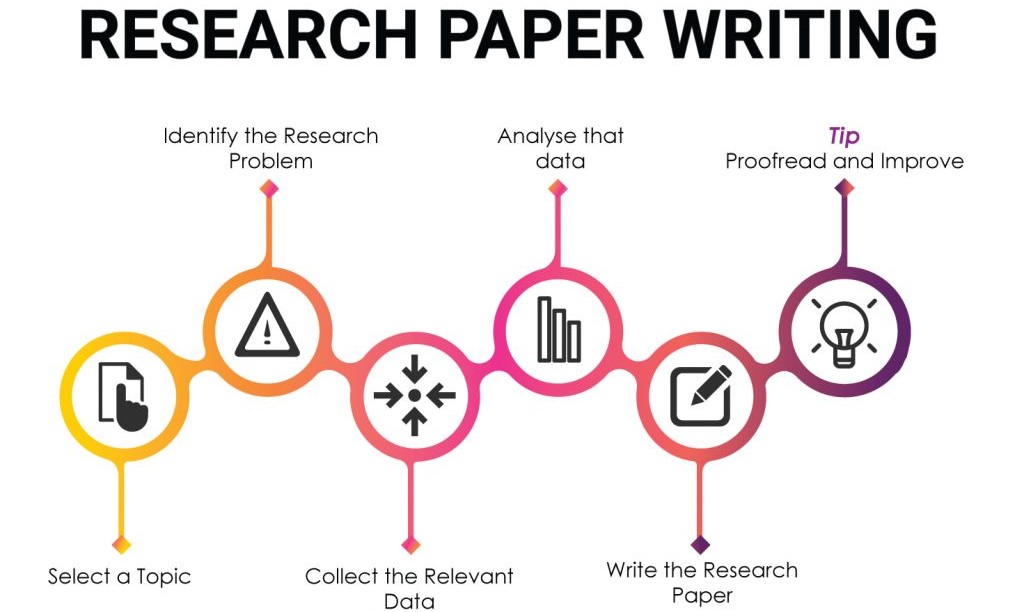
Table of Contents
The research paper for nursing is a crucial element of academic success in the field. It is not merely an assignment but a vital tool for developing critical thinking, analyzing complex health issues, and contributing to the advancement of nursing practice. Crafting an engaging research paper for nursing requires more than just compiling facts; it involves presenting information in a clear, concise, and compelling manner that captures the reader’s attention and fosters a deeper understanding of the topic.
This guide aims to equip aspiring nurses with the necessary tools to write impactful research papers that demonstrate their understanding of the field and contribute to the body of knowledge within nursing.
Step-by-Step Guide to Crafting a Research Paper for Nursing
1. Selecting a Captivating Topic
The first step in writing an engaging research paper for nursing is choosing a topic that aligns with your interests and resonates with your passion for the profession. This topic should be relevant to current nursing practice and address a gap in existing knowledge. To ensure your topic is both relevant and captivating, consider these tips:
- Identify Current Issues: Stay informed about the latest trends, advancements, and challenges in the nursing field. Explore journals, conferences, and professional organizations for insights into pressing issues.
- Examine Your Personal Interests: What aspects of nursing particularly intrigue you? Choose a topic that aligns with your personal interests and fuels your curiosity.
- Evaluate the Feasibility of Research: Ensure the chosen topic is narrow enough to be explored in-depth within the scope of your paper while being broad enough to offer a significant contribution.
- Consider the Audience: Keep your audience in mind. Who are you writing for? How can you present the information in a way that is both informative and engaging for your target audience?
2. Conducting Thorough Research
Once you have selected a topic, you must conduct comprehensive research to gather the necessary information for your paper. This involves accessing a range of credible sources, critically evaluating the information, and synthesizing the findings to develop a strong argument.
- Utilize a Variety of Sources: Go beyond textbooks and scholarly articles. Explore reputable websites, government reports, clinical practice guidelines, and professional organization materials.
- Evaluate Source Credibility: Always assess the reliability of your sources. Look for sources from reputable authors, institutions, and organizations with a strong track record in the field.
- Use a Consistent Citation Style: Adhere to a specific citation style (e.g., APA, MLA, Chicago) throughout your research paper. This ensures consistency and clarity in referencing your sources.
- Synthesize Information: Don’t simply present a collection of facts. Organize the information from your research into a coherent narrative that supports your main argument.
3. Structuring Your Research Paper for Nursing
The structure of your research paper for nursing is crucial for conveying your research findings effectively and creating a clear and engaging reading experience. Follow this standard structure for organizing your paper:
- Introduction: The introduction serves as a roadmap to your research paper. Start by introducing the topic, establishing its significance, and outlining your main argument or thesis statement.
- Literature Review: This section provides a comprehensive overview of existing research on your chosen topic. Analyze and synthesize previous findings, highlighting gaps in knowledge and identifying areas for further investigation.
- Methodology: This section details the research methods used to collect and analyze data for your paper. Describe the research design, population, sampling procedures, data collection methods, and data analysis techniques.
- Results: This section presents the key findings of your research, using tables, figures, and statistical data to illustrate your findings.
- Discussion: Interpret your findings in light of existing literature, highlighting the significance of your research and its implications for nursing practice.
- Conclusion: Summarize your main findings and restate your argument, emphasizing the contributions of your research to the body of knowledge.
- References: Provide a comprehensive list of all sources cited within your research paper for nursing.

4. Writing a Compelling Narrative
A compelling narrative is essential for engaging your reader and leaving a lasting impact. To create a captivating narrative in your research paper for nursing, focus on the following:
- Use a Clear and Concise Writing Style: Avoid jargon and technical terms that may confuse your audience. Write in plain language, using strong verbs and active voice to enhance clarity and readability.
- Present Your Argument Logically: Structure your paper in a way that logically progresses from the introduction to the conclusion, ensuring each section builds upon the previous one.
- Use Engaging Language: Incorporate vivid language and compelling anecdotes to bring your research to life.
- Use Visual Aids: Charts, graphs, and images can help to clarify complex information and make your research more accessible and engaging.
- Maintain a Professional Tone: While your research paper for nursing should be informative and engaging, it is essential to maintain a professional tone throughout.
5. Ensuring Accuracy and Clarity
Accuracy and clarity are paramount in any research paper for nursing. It is crucial to ensure that all information presented is accurate, reliable, and unbiased.
- Fact-Check Your Work: Carefully review all information presented in your paper, confirming its accuracy with credible sources.
- Avoid Bias: Be mindful of potential biases that may influence your research findings. Present information objectively and avoid personal opinions or unsupported claims.
- Edit and Proofread: Proofread your paper carefully for grammatical errors, spelling mistakes, and inconsistencies in formatting. Consider asking a peer to review your paper for clarity and accuracy.
6. The Importance of Originality and Ethical Considerations
Originality and ethical considerations are fundamental aspects of any research paper for nursing. It is essential to present original work and to acknowledge the contributions of others by properly citing all sources.
- Avoid Plagiarism: Always cite your sources accurately and avoid presenting others’ work as your own. Utilize plagiarism detection tools and be aware of the potential consequences of academic dishonesty.
- Obtain Informed Consent: If your research involves human subjects, ensure you have obtained informed consent from participants before conducting any studies.
- Maintain Confidentiality: Protect the privacy and confidentiality of participants by anonymizing data and ensuring all information is handled ethically and responsibly.

7. Writing an Effective Abstract
The abstract is a brief summary of your research paper for nursing, providing readers with a concise overview of your work. It should be clear, concise, and engaging, accurately reflecting the content of your paper.
- Keep it Concise: Aim for a length of 150-250 words.
- Include Key Information: Briefly state your research question, methodology, findings, and conclusions.
- Use Clear and Concise Language: Avoid jargon and technical terms. Write in a straightforward and easy-to-understand manner.
- Highlight the Significance: Emphasize the contribution of your research to the field of nursing and its implications for practice.
8. Effective Presentation of Your Research Paper for Nursing
Once you have completed your research paper for nursing, consider how to present your work effectively to a wider audience. Presenting your research can enhance your credibility and contribute to the advancement of nursing knowledge.
- Prepare a PowerPoint Presentation: Create a visually appealing and informative presentation that effectively summarizes your research findings and engages your audience.
- Practice Your Delivery: Rehearse your presentation beforehand to ensure you are comfortable with the material and can deliver it confidently.
- Engage Your Audience: Use interactive elements, such as questions and polls, to keep your audience engaged and foster discussion.
9. Seeking Feedback and Revision
Seeking feedback from peers, professors, or mentors is essential for improving the quality of your research paper for nursing. Feedback can provide valuable insights into the clarity, accuracy, and overall impact of your work.
- Engage in Peer Review: Share your paper with classmates or colleagues for constructive criticism and suggestions.
- Seek Guidance from Professors: Consult with your professors for feedback on your research paper for nursing. They can provide valuable insights and guidance on how to improve your work.
- Incorporate Feedback: Take the feedback you receive seriously and use it to revise your paper, ensuring it meets the highest standards of academic excellence.
10. Publishing Your Research
Publishing your research paper for nursing can have a significant impact on the field, sharing your findings with a broader audience and contributing to the advancement of nursing practice.
- Identify Suitable Journals: Research journals that focus on your area of expertise and align with your research topic.
- Follow Submission Guidelines: Carefully review the submission guidelines of the journal you choose, ensuring your paper adheres to their specific formatting and style requirements.
- Prepare a Cover Letter: Write a compelling cover letter that highlights the significance of your research and its contributions to the field.
Common Pitfalls to Avoid When Writing a Research Paper for Nursing
Writing a research paper for nursing requires careful attention to detail and adherence to specific guidelines. Here are some common pitfalls to avoid:
1. Lack of a Clear Research Question: A well-defined research question is the foundation of a strong research paper for nursing. Without it, your paper will lack direction and focus. Ensure your question is specific, measurable, achievable, relevant, and time-bound (SMART).
2. Inadequate Literature Review: A thorough literature review is crucial for any research paper for nursing. It helps you understand the existing knowledge on your topic and identify gaps that your research can address. Avoid relying on superficial or outdated sources.
3. Weak Methodology: The methodology section of your research paper for nursing outlines the steps you took to collect and analyze your data. Ensure your methods are appropriate for your research question, clearly described, and ethically sound.
4. Biased Interpretation of Results: When interpreting the results of your research, it’s important to remain objective. Avoid drawing conclusions that are not supported by the data, and be aware of potential biases in your research design.
5. Lack of Proper Citation and Formatting: A research paper for nursing requires meticulous attention to citation and formatting guidelines. Failure to cite sources accurately can lead to plagiarism, while incorrect formatting can detract from the overall quality of your work.
6. Weak Conclusion: The conclusion of your research paper for nursing should summarize your key findings and their implications for practice. Avoid simply restating your results; instead, offer insights and recommendations based on your research.
7. Poor Writing Style: Clear and concise writing is essential for any research paper for nursing. Use appropriate language, avoid jargon, and ensure your sentences are grammatically correct and easy to understand.
By avoiding these common pitfalls, you can improve the quality and impact of your research paper for nursing.
Examples of Compelling Nursing Research Paper Topics
Here are engaging topics for nursing research papers, designed to spark your interest and contribute meaningfully to the field:
- The Impact of Mindfulness-Based Interventions on Chronic Pain Management in Hospitalized Patients: This research paper for nursing could explore the effectiveness of mindfulness techniques in reducing pain perception and improving quality of life for patients with chronic pain.
- Exploring the Use of Virtual Reality for Post-Surgical Pain Management in Pediatric Patients: This research paper for nursing could investigate how VR technology can be used to distract and comfort children after surgery, potentially reducing the need for pain medication.
- Evaluating the Effectiveness of Early Mobility Programs for Preventing Post-Operative Complications in Elderly Patients: This research paper for nursing could analyze the impact of early mobility programs on reducing the risk of complications like deep vein thrombosis and pneumonia in elderly patients after surgery.
- Examining the Relationship Between Nurse Burnout and Patient Safety Outcomes in Critical Care Units: This research paper for nursing could explore the connection between high levels of burnout among nurses and potential negative impacts on patient safety, offering insights for interventions.
- Assessing the Use of Telehealth Technology for Providing Remote Mental Health Support to Rural Communities: This nursing research paper could explore the feasibility and effectiveness of telehealth in expanding access to mental healthcare services in underserved areas.
- Developing a Framework for Integrating Cultural Competence into Nursing Education Curricula: This research paper could propose a framework to better equip future nurses with the skills and knowledge needed to provide culturally sensitive care to diverse patient populations.
These topics are just a starting point. Feel free to adapt or refine them to align with your specific interests and expertise. A compelling research paper for nursing should not only address a relevant issue but also contribute to the body of knowledge in the field.

Frequently Asked Questions about Nursing Research Papers
1. What is the purpose of writing a research paper for nursing?
The purpose of a research paper for nursing is to contribute to the body of knowledge in the nursing field by presenting original research findings, analyzing existing literature, or exploring a specific nursing issue.
2. What are the different types of nursing research papers?
There are several types of research papers for nursing, including:
- Literature reviews: Summarize and critically analyze existing research on a specific topic.
- Qualitative studies: Explore and understand the experiences, perspectives, and meanings of individuals or groups.
- Quantitative studies: Collect and analyze numerical data to test hypotheses and make generalizations.
- Mixed methods studies: Combine qualitative and quantitative approaches to gather a comprehensive understanding.
3. How do I choose a topic for my research paper for nursing?
When choosing a topic for your research paper for nursing, consider:
- Your interests and areas of expertise: Select a topic that aligns with your passions and knowledge.
- The relevance to current nursing practice: Choose a topic that addresses a significant issue or gap in current knowledge.
- The feasibility of conducting research: Ensure that you have access to resources, time, and participants.
4. What are the key components of a nursing research paper?
A typical research paper for nursing includes:
- Introduction: Briefly explains the topic, research question, and purpose.
- Literature review: Provides a comprehensive overview of relevant research findings.
- Methodology: Describes the research design, data collection methods, and data analysis procedures.
- Results: Presents the findings of the study in a clear and concise manner.
- Discussion: Interprets the findings, discusses their implications, and suggests further research.
- Conclusion: Summarizes the main findings and contributions of the study.
- References: Lists all the sources cited in the paper.
5. How can I ensure that my research paper for nursing is credible and ethical?
To ensure credibility and ethical conduct in your research paper for nursing, consider:
- Using credible sources: Consult peer-reviewed journals, reputable websites, and authoritative textbooks.
- Following research ethics guidelines: Obtain informed consent from participants, protect their privacy, and avoid bias.
- Properly citing all sources: Give credit to the original authors by using appropriate citation styles.
6. What are some common mistakes to avoid in a research paper for nursing?
Some common mistakes to avoid in a research paper for nursing include:
- Plagiarism: Failing to give credit to the original authors.
- Lack of clarity and coherence: Using unclear language or an illogical structure.
- Insufficient research: Failing to conduct a thorough literature review or gather sufficient data.
- Poorly supported claims: Making generalizations or drawing conclusions that are not supported by the evidence.
7. Where can I find help with writing my research paper for nursing?
If you need help with your research paper for nursing, consider seeking guidance from:
- Your professor or instructor: They can provide specific feedback and advice.
- The library: Librarians can help you find resources and learn about research techniques.
- Writing centers: Many universities offer writing centers that provide support with writing skills.
- Online resources: Numerous websites offer tips, tutorials, and templates for writing research papers.
By understanding these frequently asked questions, you can approach writing your research paper for nursing with confidence and achieve a successful outcome. Remember to be thorough in your research, clear in your writing, and ethical in your approach.

The Bottom Line: Engaging and Impactful Research Papers for Nursing
Writing an engaging research paper for nursing is a challenging but rewarding endeavor. It requires a deep understanding of the field, a commitment to rigorous research, and a knack for presenting information in a clear, concise, and captivating manner. By following these guidelines, aspiring nurses can craft impactful research papers that demonstrate their knowledge, contribute to the advancement of the profession, and elevate their standing as future leaders in the field.
Remember, your research paper for nursing is not just an assignment; it is an opportunity to make a difference in the lives of patients and to contribute to the ongoing evolution of nursing practice. With careful planning, diligent research, and a commitment to excellence, you can create a research paper for nursing that is both informative and engaging, leaving a lasting impact on the field.
Get Customized Nursing Research Paper Writing Help
Are you looking for help with writing a research paper for nursing? Then, engage our experts at PhD Nurse Writer. We provide customized nursing research paper assistance, covering topic suggestion, paper writing, proofreading, formatting and plagiarism removal. Our experienced writers can also assist you with crafting authentic nursing essays, case studies and dissertations.







